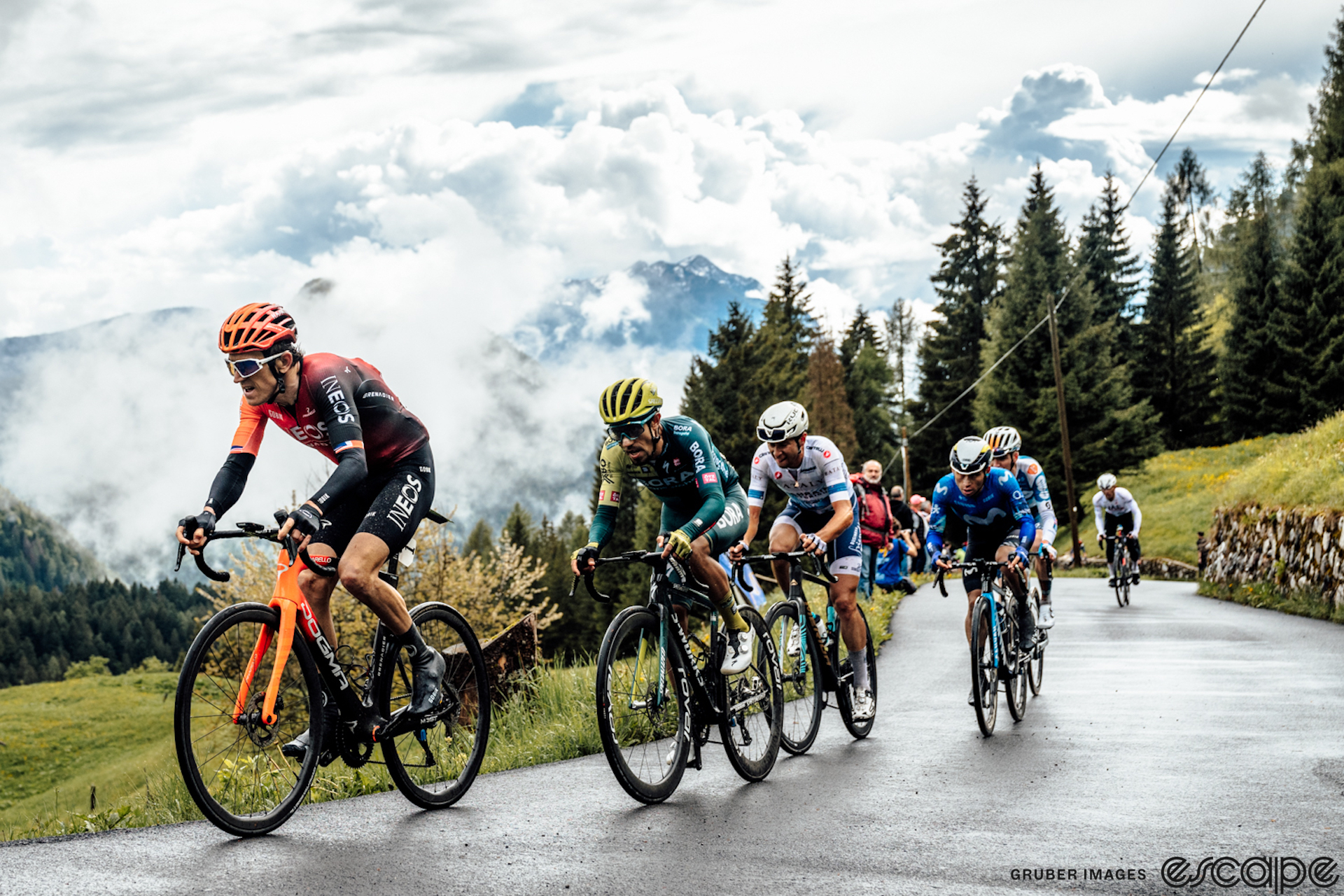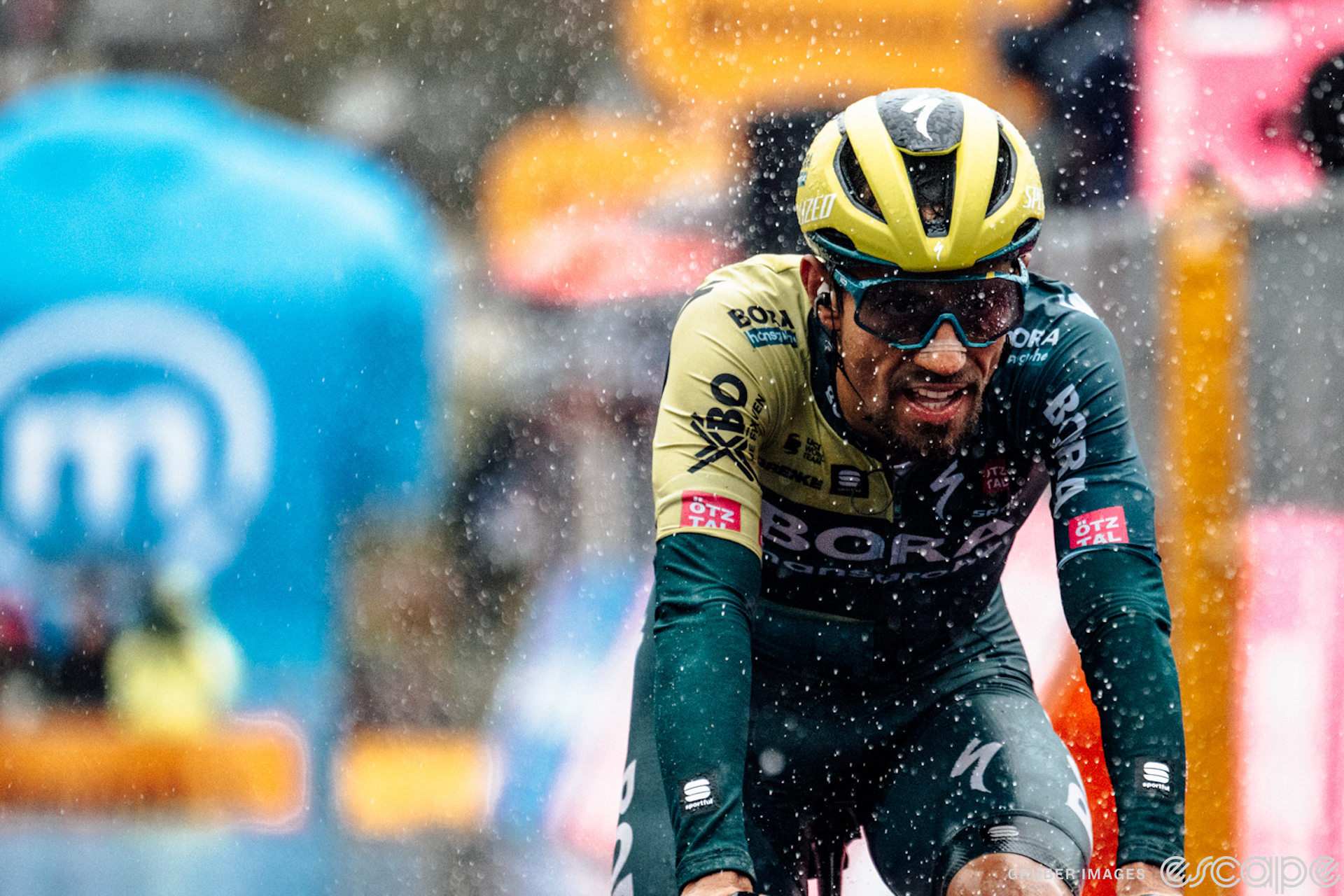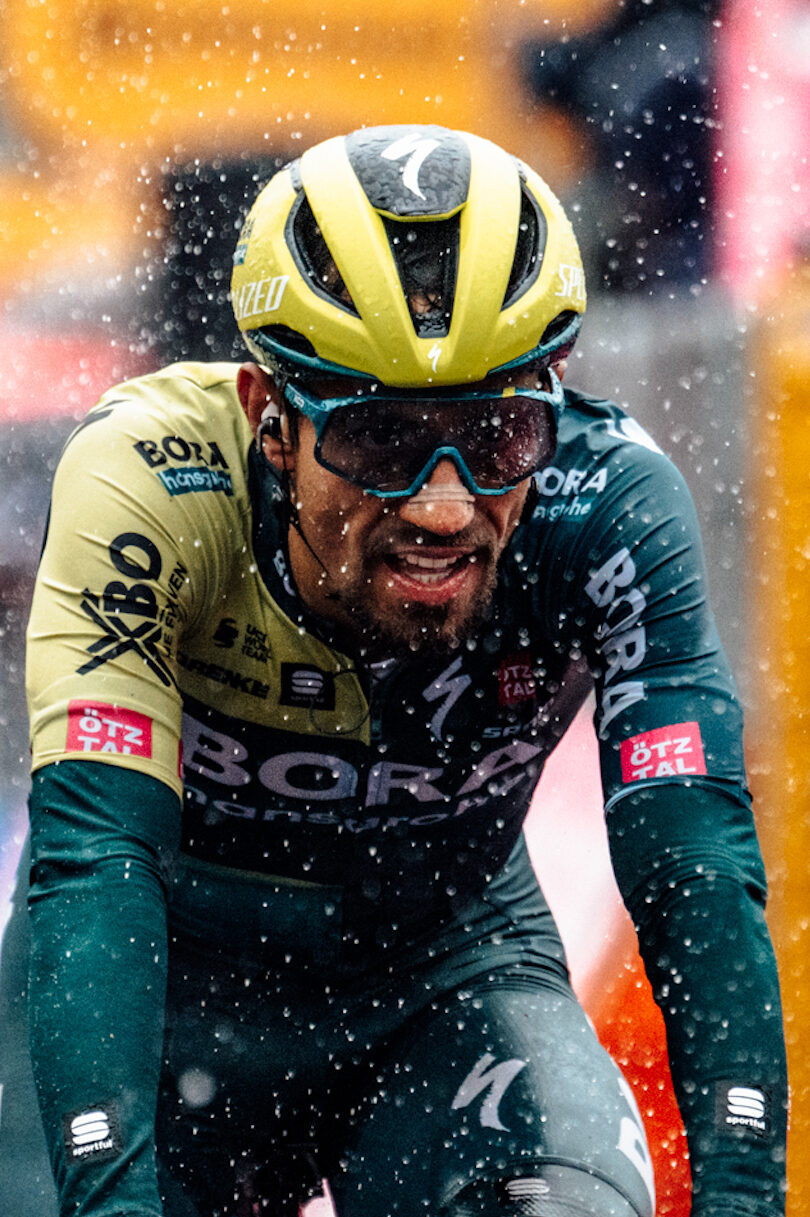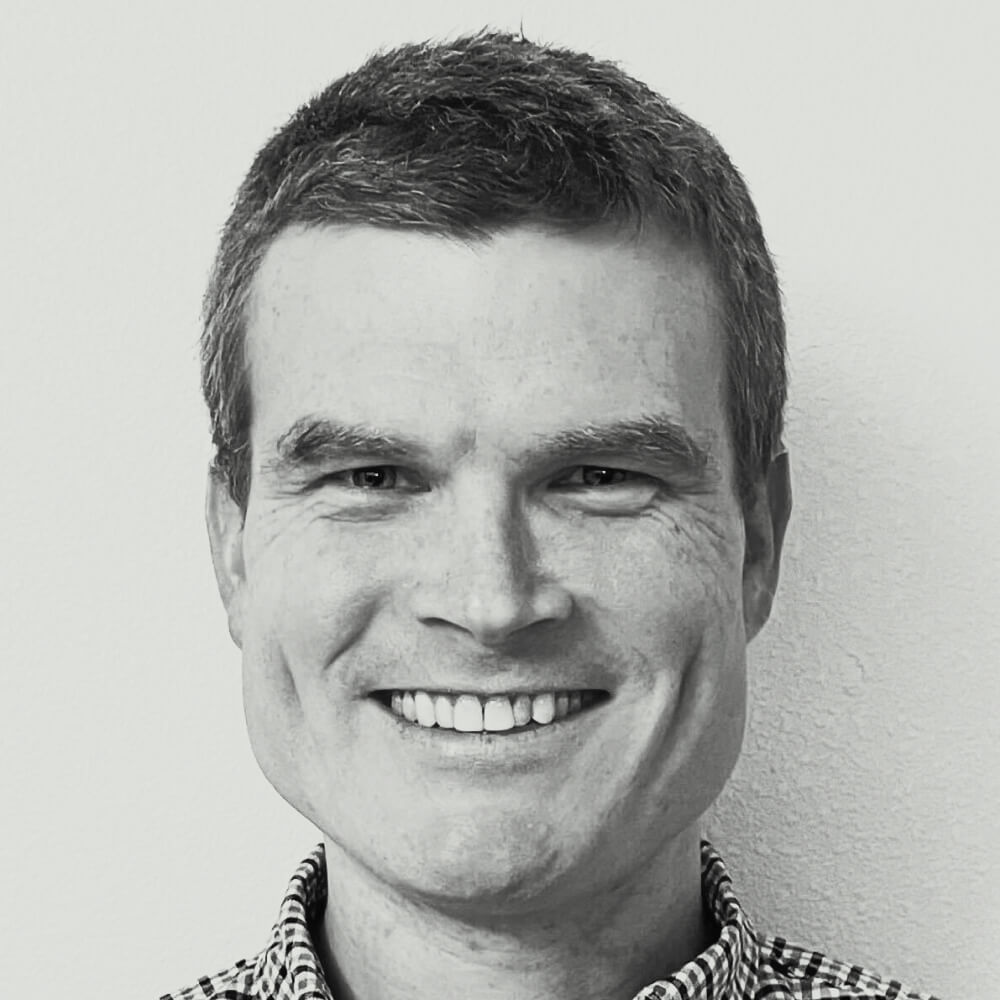In the latest entry in our 10 Questions series, Escape Collective caught up with Bora-Hansgrohe’s Daniel Martínez on the heels of his runner-up ride at the Giro d’Italia.
The 28-year-old Colombian, already a Grand Tour stage winner since the 2020 Tour de France and now a Grand Tour podium finisher too, gave us some insight into his unique worldview, his love of Colombian food, what it’s like to be attacked by Tadej Pogačar, and more …
Dane Cash: What is your pre-race ritual?
Daniel Martínez: The moment the race arrives – I am a big believer in God – so let’s say that every morning, I do a mix of meditation and prayer. That is my ritual. I think that if I had any kind of [specific] religion, which I don’t, I am very attached to and I really like the way Jewish people express their religion … I really like how they teach and how they believe in God.
DC: What is the most memorable moment from the most memorable day of your career?
DM: Without a doubt, what I just did in the Giro. Being on the podium in Rome for me is a very special day, because for us climbers – the riders who can, let’s say, win one-week races and can do very well in the three weeks, the Grand Tours – it is very special when we get there and we are on a podium of a Grand Tour …
It was spectacular because I had worked so hard for many years to try to do well or to get on the podium in a Grand Tour, and it had never happened. So this time in the Giro d’Italia it was something special for me because it was 21 days, every day was very hard, a lot of stress, others of suffering, of cold. So being there on the podium is a feeling of tranquility, like a job well done …
That day my parents were there, my wife, my children, with the family, all there in Rome. The next day we went to visit Rome, to do some sightseeing with them there, and the restaurants, and a glass of wine to celebrate.
DC: We’ll sneak in one more question about the Giro here since we’re on the topic. What kind of conversations are going on in the group when Tadej Pogačar attacks?
DM: The truth is that when Pogačar attacks, we usually have planned that Pogačar can be beaten, you know? Pogačar can be beaten. But really when we are there, for example in the Monte Grappa stage, I had in my mind, “Well, today I want to fight to win the stage, right?” He set a pretty strong pace, and already in the last minutes when [Pogačar’s teammate Rafał] Majka was pulling, I was thinking, “Pogačar is going to attack. I’m feeling good, but I’m already a bit at my limit.” So I was waiting to see how strong Pogačar was going to come out to maybe [be] on the first wheel. When I saw Pogačar coming out, I’m already a bit at my limit and when he attacks he comes out very fast; it’s like an explosion practically. It is almost impossible, you know? I mean, mentally it destroys you when he attacks, because you are already at the limit and then that attack he makes is very strong.
So at that moment, it’s best to think for us it was another Giro d’Italia, you know? Pogačar was competing with the time, with the wind, with the mountains, with the records. We were competing … G [Geraint Thomas] was there, [Ben] O’Connor was there, [Antonio] Tiberi was there. So for us this was another Giro d’Italia.
DC: Looking back to the beginning of your career, when did you start to believe that you were going to become a professional cyclist?
DM: I think as a junior, more or less, when I got to a World Championship in Tuscany, that was in Florence, 2013 I think. We were all there, I was racing with the Colombian national team. The national team had the elites, which was Nairo [Quintana], [Carlos] Betancur, Rigo [Urán], so it was quite a major team, right? At that moment I said, if I am here and if Colombia selects me to come here to represent in the junior category, I have a chance to also be a professional. When I see the professionals there who share with us and that we are there chatting and training together, this fills me with motivation and I say, maybe I think I could be a professional.

DC: Is there a rider in the peloton today that you want to be more like, either in personality or in skillset?
DM: I really admire G at the moment. G is a rider who is very consistent in the Grand Tours, you know? I had the opportunity to be a teammate with him and I admire him a lot because he is a very good person. As a cyclist he is very professional. Also the victories he has are quite big. Also his age, it is not easy to reach 38 years old and be at that same level. So, G would be the rider to emulate.
DC: Other than phys ed, what was your best subject in school? And what do you think you’d be doing for a living if you didn’t work in cycling?
DM: I was a good student, I liked math, I was good at it, but a subject in particular that caught my attention was politics and social sciences. That also included the history of the countries, a bit of history, and I also liked that a lot … If I didn’t work in [cycling], I think I would be very into philosophy or psychology.
DC: If your friends were describing your personality without talking about cycling, what would they say?
DM: I think they would say that … I don’t know, I consider myself a good friend, an advisor. Also sometimes a bit conservative: I analyze a lot, I am very analytical about everything that could be involved making a decision. What happens if I do something or not? I am very analytical about this. From there, I start to analyze what would be best for me. This analysis, this ideology or introspection that I do on myself, I also start to apply it to my friends, so they start to see things with a different perspective.
DC: Are there things about the life of a professional cyclist that you wish fans knew more about?
DM: Many things. For example, the personal life with children [Martínez has a five-year-old and a two-year-old – Ed.]. You get up early, they have to go to school, you bathe them – or their mother bathes them – and you make them breakfast, you take them to school, and then, of course, when you come back, you eat and go to train. And in the afternoon, again, you know? When you get home in the afternoon, you pick up the kids from school and start the very family-oriented life. So, this is something that is sometimes never mentioned, but life with the kids is complicated too because it requires a lot of energy.
DC: Is there a particular book you are reading at the moment?
DM: Yes. It’s a Buddhist book on life and death. “The Tibetan Book of Living and Dying.”
DC: Last question: If you are having a meal to celebrate something special, what are you eating?
DM: Without a doubt, Colombian food. Without a doubt. Empanadas, pan de quesos and pandebonos [Colombian cheese breads] as appetizers. Then, I am undecided between an ajiaco [a traditional soup with chicken and several kinds of potato] or a sopa de platano [Colombian plaintain soup]. Or a bandeja paisa, or barbecue. A Colombian barbecue with a barbecue grill.
Did we do a good job with this story?


